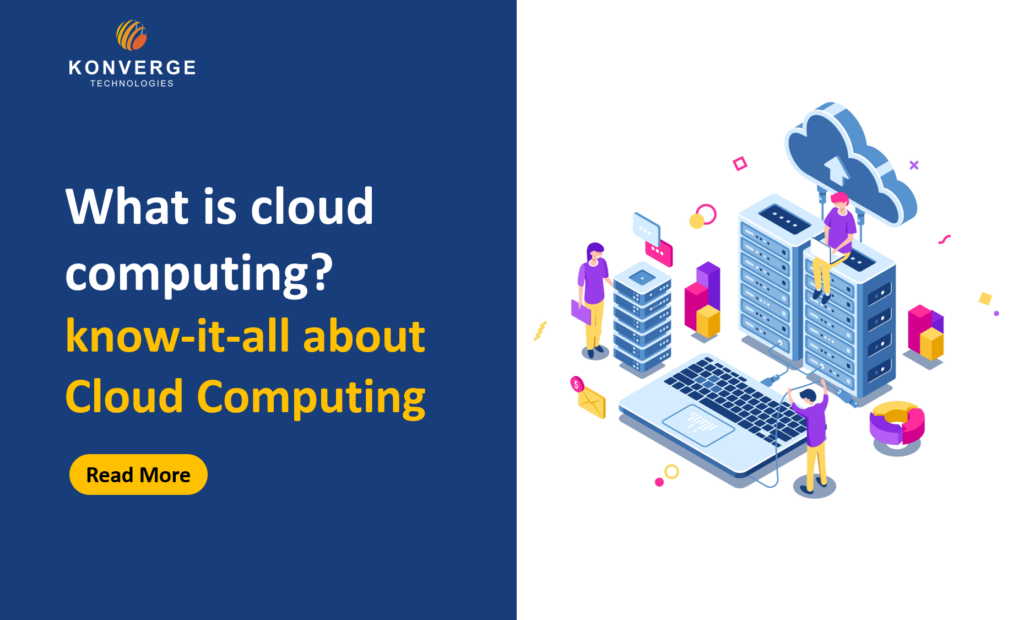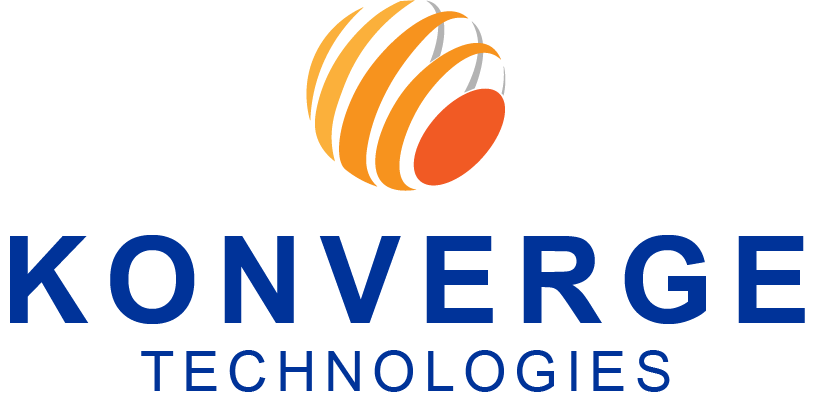
What is Cloud Computing? Know it all about Cloud Computing and services

The know-it-all about Cloud Computing
The term was coined in 2006; however, the practice kickstarted back in the late-90s. We are talking about Cloud Computing. Today, businesses adopt cloud-based products and services to transform their business processes into simpler but efficient operations. Cloud computing technology stands tall in the make-shift situation, thus becoming the foundation of digital transformation.
What is cloud computing?
Cloud computing enables the delivery of computing services over the cloud. The list includes networking, cloud servers, database, analytics, storage, and several others. This model allows businesses to access infrastructure, platform, and software services and modernize their business operations. Simply put, a company can access all the business files and features of their system without stacking files on their office desk or storing bulk in their computers—the internet makes it all possible.
Cloud computing is allowing businesses to see never-seen-before growth in the ever-changing market conditions. The growth areas include increased capital margin, streamlined IT maintenance, modernizing business processes, and secured services and solutions. Several top-notch tech providers are lining up in the competition to provide better cloud solutions and services. For instance, Cisco System’s proprietary cloud solutions extensively cover network, analytics, security, and workload management under one umbrella. As a result, it renders an extensive portfolio of multi-cloud software and integrated solutions to transform business processes into something more straightforward, faster, more secure, versatile, and rewarding. Similarly, Konverge Technologies uses intelligent automation solutions to bring out a seamless digital transformation. It harnesses enterprise cloud computing service model and hybrid IT infrastructure to bring out the infrastructural transformation with the cloud.
Different types of cloud computing
Primarily there are four types of cloud computing deployment models: private cloud, public cloud, hybrid cloud, and multi-cloud.
1- Private cloud: Typically, a single business or enterprise uses private cloud computing resources. The set-up can either be located in an on-site data center or be hosted by a service provider over the internet. Advancement in cloud technology has aided enterprises and individuals to either use the rented cloud environment or vendor-owned data centers located off-premise. Examples are VMware, Dell, Oracle, Citrix, SAP, and more.
2- Public cloud: Unlike the private counterpart, a public cloud is not owned by the end-user. Here, a service provider owns and manages the cloud environment, including hardware, software, and supporting infrastructure. The user can access and drive these public cloud services through a web browser. Examples are AWS, Google Cloud, IBM Cloud, Microsoft Azure, and more.
3- Hybrid cloud: Simply put, it is a combination of private and public cloud deployment modeling to share data and applications. A hybrid cloud offers flexibility in deployment options as it connects infrastructure and applications between cloud-based resources and on-premise resources. Examples are Hewlett Packard Enterprise, Google, IBM Bluemix, Microsoft, and more.
4- Multi-cloud: An approach that uses more than one cloud service from more than one private or public cloud vendor. Enterprises can adopt multiple cloud strategies to achieve a higher degree of flexibility. To simply put, multi-cloud has numerous cloud services that perform different functions at a time.
Benefits of Cloud Computing
There are several business benefits of cloud computing like cost-cutting, security, flexibility, mobility, analytics, quality control, disaster management, automated processes, sustainability, and increased collaboration with multiple processes at one time. Alongside the mentioned benefits, cloud computing also aids enterprises to meet government compliance requirements.
Which cloud environment is the best one?
There are several factors to consider before buying a cloud package: the workload volume and pattern. In a high volume or highly fluctuating demand, a public cloud is the best. Similarly, workloads with repeating patterns is better suited in a private cloud. The best-suited cloud environment is the hybrid cloud, as it supports hosting of any form of the workload from anywhere.
From a safety point of view, the hybrid cloud comes with the best security features. It allows users and admins to minimize data exposure. It can be achieved by shifting data and workloads across different environments according to the security requirements.
Based on the two points mentioned above, a hybrid cloud environment seems like the best choice as enterprises get more flexibility in deployment and safety that can come with budget pricing, as they can choose services according to their individual business needs.
Advantages and Disadvantages
Advantages:
1. One of the most important advantages of cloud computing is advanced data security. It comes with cutting-edge features to handle, manage, and store data in the most secure way possible.
2. It allows faster recovery of data once stored in the cloud.
3. The hardware and software maintenance costs for enterprises are considerably cut down by using cloud computing.
4. Another benefit is the availability of services in the pay-per-use model. Cloud computing offers APIs that allow users to pay as per the used services.
5. Higher mobility and accessibility
6. Unlimited storage capacity
Disadvantages:
1. Fluctuating internet connectivity
2. Vendor lock-in as different vendors or service providers offer different platforms causing difficulty moving services from one cloud to another.
3. Limited control to cloud users leaving less room for control over functions and execution of services within the cloud infrastructure.
4. Compromised security due to transfer of information to the third party (a cloud computing service provider).
How can Konverge Technologies help businesses with their cloud solutions?
Harnessing the best among all cloud environments, Konverge offers a secure, agile, and most responsive cloud platform to meet enterprise-level business needs. It provides a range of solutions from cloud computing, cloud networking solutions, cloud security, and backup to accelerate business performance. It features a unique enterprise cloud computing service model to tap new business opportunities. This model allows enterprises to build a hybrid IT architecture alongside strengthening security and amplifying performance.
Even though it comes with advantages and disadvantages, cloud computing is the fastest-growing service in network-based computing. It vastly reduces the burden off from IT teams, speeding up the process and overall performance. Moreover, it offers a significant advantage as it benefits users of all sizes and natures. Owing to these factors, it would be safe to say that this technology is here to stay.
We hope this blog helped you in understanding cloud computing.
Below are our few blogs that can help you know more about Zero Trust Security, AI, RPA Automation, and SASE Solutions.
What is Zero Trust Security and why is it so important?
Recent Posts


How Cisco Video Collaboration Enhances Hybrid Work Productivity


